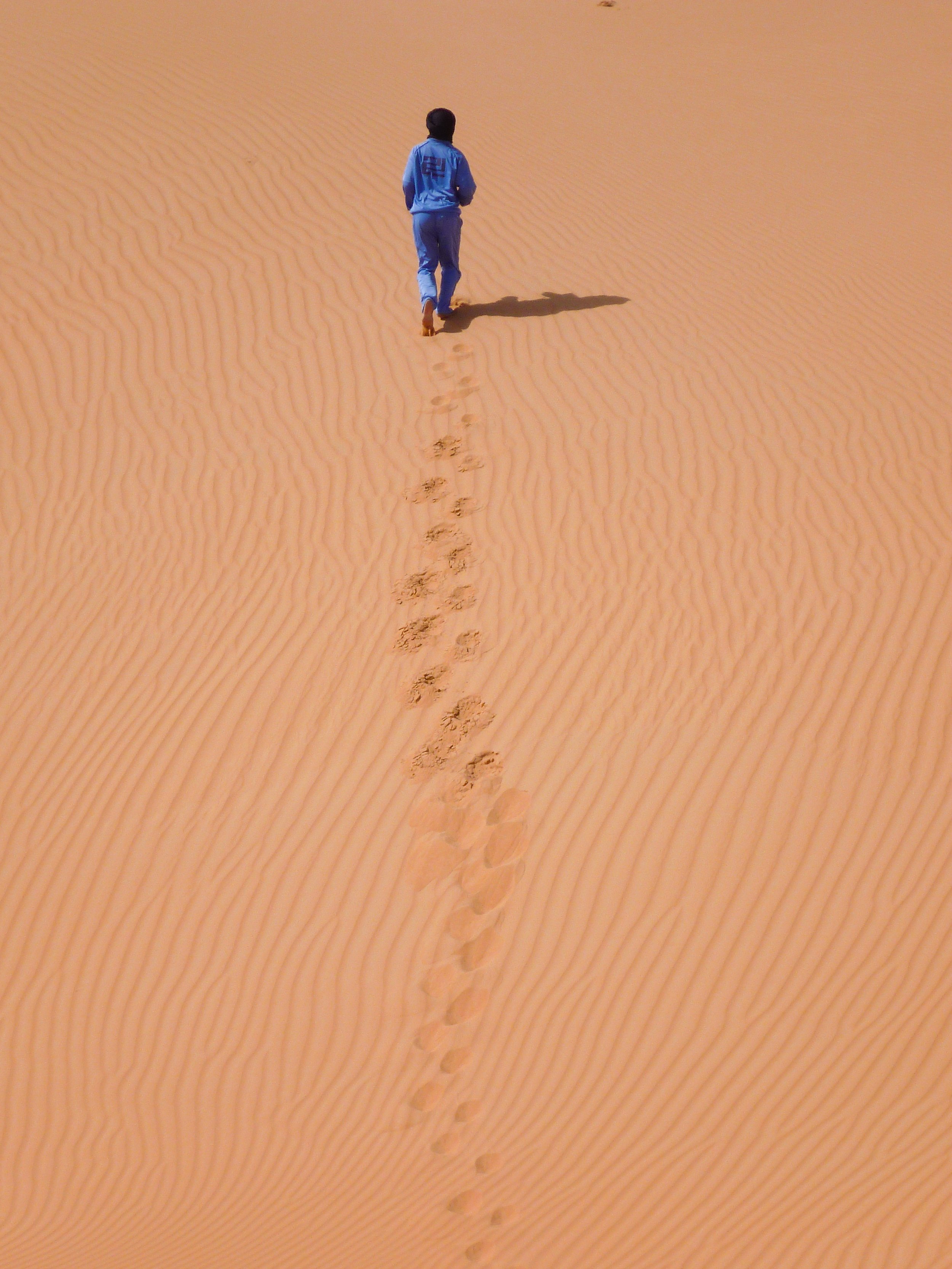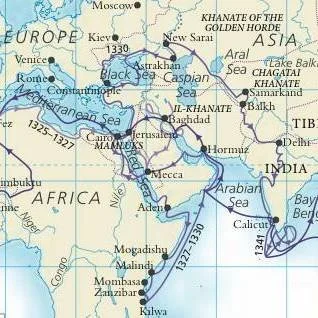
Who was Ibn Battuta?
Born in 1304 in the Moroccan port of Tangier, Abu Abdullah Muhammad Ibn Abdullah Al Lawati Al Tanji Ibn Battuta (أبو عبد الله محمد ابن عبد الله اللواتي الطنجي ابن بطوطة), known to history simply as Ibn Battuta, was the greatest traveler to ever roam the earth.
In an era when precious few possessed the means or the courage to submit to curiosity and venture off the map's edge, Ibn Battuta set out as a young man to complete Islam's traditional pilgrimage to Mecca, and ultimately spent the better part of his life wandering.
But Ibn Battuta is known to us today not just because he traveled, but because he recorded for posterity all that he saw along the way.
The Voyage
In nearly 30 years on the road, Ibn Battuta traversed North Africa, Egypt, and the Swahili coast; reached Mecca on the Arabian Peninsula, visiting Palestine and Greater Syria en route; swung through Anatolia and Persia to Afghanistan; crossed the Himalayas to India, then Sri Lanka and the Maldives; and reached the eastern coast of China before turning around and zigzagging all the way back to Morocco. Not yet satisfied, he added on a few more years criss-crossing the Sahara. He traveled farther and discovered more than his famous contemporary Marco Polo.
Even before the term existed, Ibn Battuta lived as a true "Renaissance man." A trained qadi, or judge, he was also proficient in geography, botany, and Islamic theology, and possessed a social scientist's shrewd capacities of observation. But the primary reason Ibn Battuta lives on today is his writing.
The Story
Throughout his decades on the road, Ibn Battuta collected copious observations and insights. These were recorded in his later years by a young scribe who, at the urging of Morocco's sultan, spent many months transcribing Ibn Battuta's tale, ultimately compiling A Gift to Those who Contemplate the Wonders of Cities and the Marvels of Traveling, more commonly known as al-Rihla (الرحلة) or “The Travels.”
The Travels of Ibn Battuta are the inspiration for this travel blog, in which the author seeks to follow the example set by history's greatest traveler, visiting little-known or misunderstood places and sharing the stories of those places and their inhabitants with others.
(In Arabic, ibn means "son of", and is traditionally used in recounting one's lineage. Thus, "Ibn Ibn Battuta" could be translated as "the son of Ibn Battuta.")
Recommended reading:
Further resources about Ibn Battuta and his travels.










